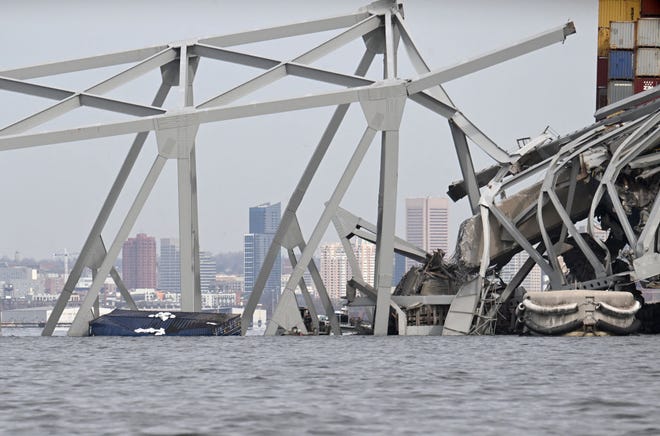The collapse of Baltimore’s Francis Scott Key Bridge could have a significant economic impact, effectively shutting down the nation’s busiest port for cars and light trucks in the U.S. and the ninth busiest port overall for an indefinite period.
The bridge provides access to the Port of Baltimore, and its sudden inability to handle imports and exports likely could mean shifting traffic to other ports on the East and West coasts, experts say. However, the reshuffling could cause product delivery delays.
Shortly after the bridge collapsed, the Port of Baltimore suspended vessel traffic “until further notice,” according to its website.
“This does not mean the Port of Baltimore is shut down. We are still processing trucks inside of our terminals,” the statement said.
But Bloomberg reported that the port “looks to be out of commission indefinitely.”
The accident comes as military conflict at the Suez Canal and low water levels at the Panama Canal separately have disrupted global shipping networks in recent weeks.

At least 40 ships are now more or less trapped inside the port, according to Reuters. At least 30 other ships had planned to arrive there.
“They will likely have to reroute shipping to other ports on the East Coast,” said Kevin Linderman, a professor and supply chain expert at Pennsylvania State University. “However, this will put additional demand on these ports, and shippers may not be able to access US markets” as efficiently, he said.
“One…



























































